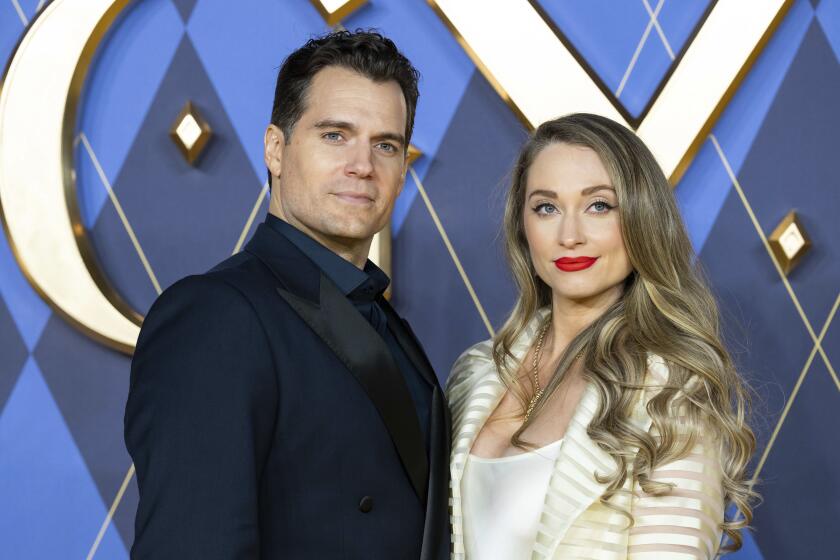Review: Challenges in and out of ring in ‘Trials of Muhammad Ali’
Muhammad Ali has one of the most recognizable faces in the world and is such a beloved public persona that George W. Bush personally presented him with the Presidential Medal of Freedom, the ultimate honor for an American civilian, in 2005.
It would not have been that many years earlier, however, when, if Bush had thought of Ali at all, it would have been in terms of opprobrium and fury. How had things changed so much in such a short time, and what had Ali done in the first place to earn the scorn of the nation’s establishment?
FOR THE RECORD:
Muhammad Ali movie: A review of the film “The Trials of Muhammad Ali” in the Sept. 27 Calendar section said the film was playing at Laemmle’s Royal theater in West L.A. The film is at Laemmle’s Music Hall in Beverly Hills.
“The Trials of Muhammad Ali” is a complex and involving documentary that looks deeply into these and related issues, presenting Ali from the unusual point of view of his outside-the-ring religious and political beliefs. It also underlines the point made by writer Robert Lipsyte, who shrewdly notes that “so many ways of looking at him have only to do with us and have nothing to do with him.”
Directed by Bill Siegel, who co-directed the Oscar-nominated “The Weather Underground,” “Trials” interviews numerous people close to Ali, including his brother Rahman; his second wife, Khalilah Camacho-Ali; former New York Times sportswriter Lipsyte; and Nation of Islam leader Louis Farrakhan. (Ali, who has Parkinson’s disease, is present only in newsreel clips.) Together they present an intriguing portrait of a man who never wavered no matter what the world threw at him. Which was a lot.
“Trials” begins with two clips that underline the often forgotten savagery that Ali faced. The first is a blistering attack delivered by talk show host David Suskind in 1968, calling Ali “a disgrace ... a simplistic fool and a pawn.” This is followed immediately by Farrakhan’s recollection of Ali’s bitter feeling about his place in the American racial landscape.
The film then flashes back to 1960 and then-Cassius Clay’s gold medal win in the Rome Olympics and how a wealthy syndicate from his hometown of Louisville, Ky. (the group’s only survivor is interviewed), guided his professional life.
Though America was shocked by Clay’s conversion to Islam and his decision to change his name, “Trials” makes it clear that this had been a long time coming, starting with a young boy’s wondering why Jesus and all the angels were white.
PHOTOS: Hollywood backlot moments
The film talks to Abdul Rahman Muhammad, who connected the fighter to the Nation of Islam when they met in 1961, and he reinforces that the future Ali was already familiar with the teachings through a celebrated phonograph record made by Farrakhan, “The White Man’s Heaven Is the Black Man’s Hell.”
Perhaps the feistiest interviewee is second wife Camacho-Ali, a schoolgirl when they first met, who tells of tearing up the man’s “Cassius Clay” autograph and telling him to come back when he knows who he is.
After surprising the boxing world by defeating Sonny Liston for the heavyweight championship in 1964, Clay announced his previous conversion to Islam and that change of name, both of which shocked the sporting world even more.
Given that time has proven how serious and sincere a commitment this conversion was, it’s a shock to see how people disregarded it and refused to use the new name.
“I’m no slave,” Ali says more than once. “Don’t call me by a white man’s name.”
PHOTOS: Billion-dollar movie club
Equally unnerving is to hear how Ali took his revenge on boxers who didn’t respect him, not only beating but also punishing fighters Floyd Patterson and Ernie Terrell rather than knocking them out.
“You can’t be a great fighter without a mean streak,” says Lipsyte, adding that the Terrell fight was “a truly terrible moment in boxing history.”
Worse was yet to come. At the height of the Vietnam War, Ali’s Louisville draft board reclassified him 1A, leading to the boxer’s decision to declare himself a conscientious objector because of his Muslim beliefs.
As a result, Ali was stripped of his championship and sentenced to prison. Even though the Supreme Court eventually voided that conviction, Ali was not allowed to fight for 31/2 years, during which time he honed his abilities as a public speaker and lived off the fees.
Ali’s faith in Nation of Islam leader Elijah Muhammad never wavered, not even when his mentor Malcolm X was assassinated in 1965. His steadfastness gradually won him regard from people who had earlier been critical, including Martin Luther King Jr., who is seen saying, “Whatever you think of his religion, you have to admire his courage.”
After dealing with Ali’s 1970 fight with Jerry Quarry, his first after his involuntary hiatus, “Trials” treads lightly on his life to date, talking to one of his daughters, Hana, about what it was like to be the child of a man who considered himself to be “daddy to the world.”
Summarizes Lipsyte, “He didn’t transcend boxing until he returned to boxing,” one of the many paradoxes of a life that requires this gripping second look.
------------------------------------
‘The Trials of Muhammad Ali’
No MPAA rating
Running time: 1 hour, 34 minutes
Playing: At Laemmle’s Royal, West Los Angeles
More to Read
Only good movies
Get the Indie Focus newsletter, Mark Olsen's weekly guide to the world of cinema.
You may occasionally receive promotional content from the Los Angeles Times.







